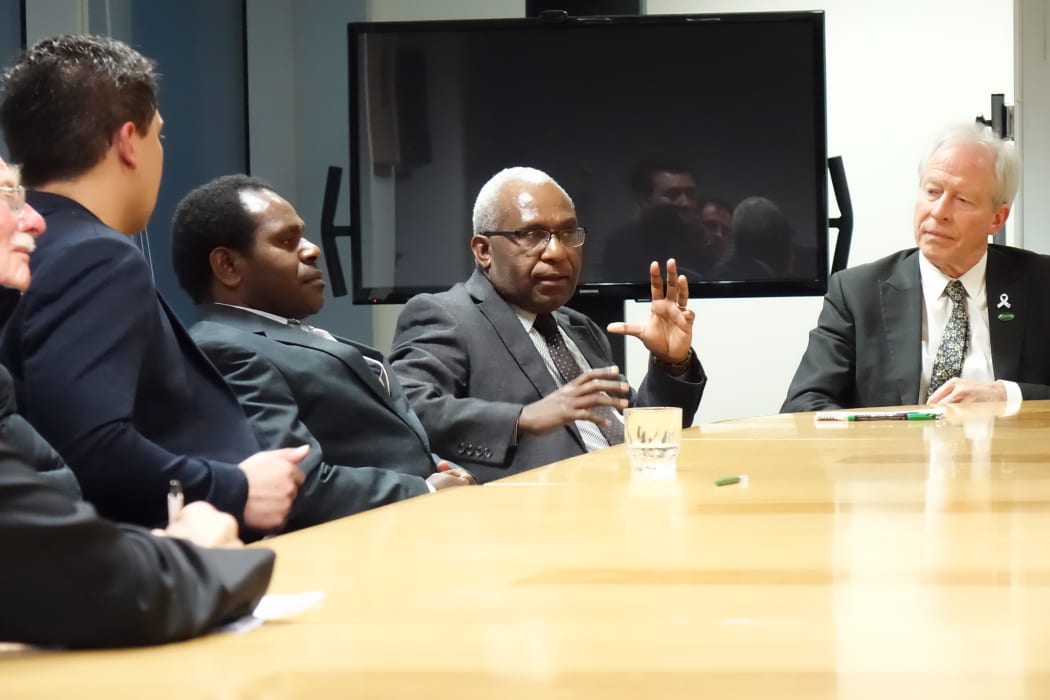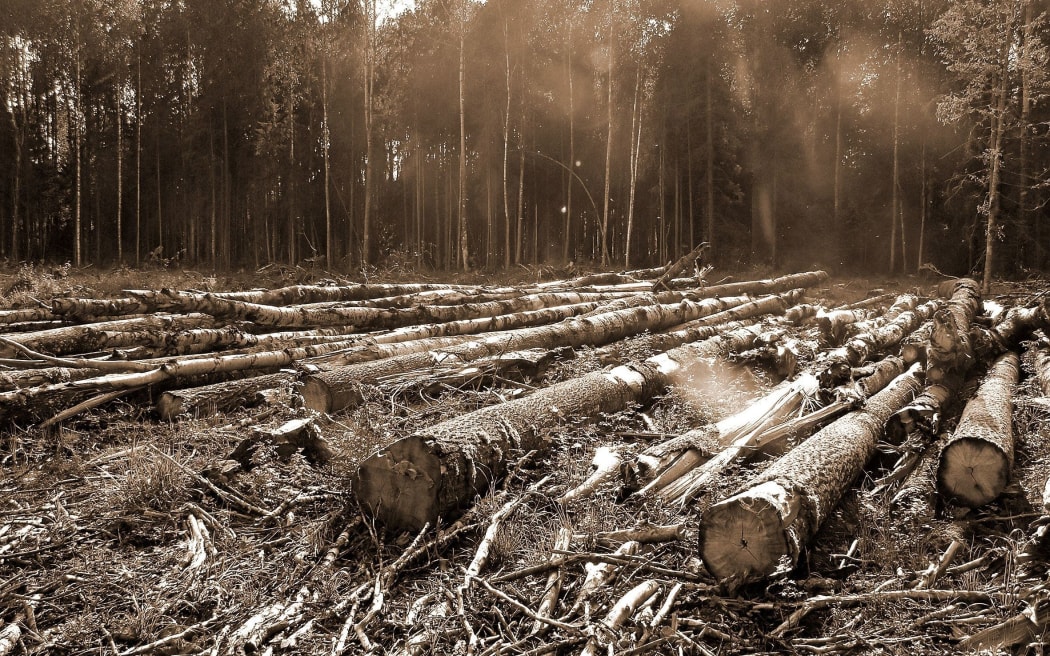The United Liberation Movement for West Papua has urged Indonesia's government to put words into action about helping the Pacific with climate change.

The secretary-general of the United Liberation Movement for West Papua, Octo Mote (centre) and the Movement's Pacific regional ambassador Akaboo Amatus Douw to his right, talk to New Zealand MPs, Wellington 2015. Photo: RNZI / Johnny Blades
This follows comments by Indonesia's ambassador to New Zealand, Tantowi Yahya, that Jakarta was committed to helping Pacific Island states confront big issues such as climate change.
He said Indonesia would assist the Pacific with capacity building on the issue.
However the Liberation Movement's Pacific regional ambassador says if Indonesia wants to help on climate change it should stop allowing high rates of carbon emissions across the republic.
Akaboo Amatus Douw says Jakarta must stop the many national and international companies whose operations in Indonesia contribute to the global warming causing havoc for Pacific Islands.
Papua region, where clearance of forest for palm oil development remains rampantis considered by environmental groups as one of the areas of most concern regarding emissions.

Photo: 123rf.com
Meanwhile, Mr Douw said the Indonesian ambassador made a false statement in claiming that West Papuans are happy being part of Indonesia.
He said Papuans feel "culturally, ethically and socially" distinct from the rest of Indonesia and seek independent statehood.
The Liberation Movement diplomat also said Jakarta's claims about developing Papua for the better were misleading
"Indonesia just wake up yesterday to try infrastructure development in West Papua after the course going to world attention globally," he said
West Papua, he said, would not develop better with what he called Indonesia's "discriminative model of infrastructure and social economic development".

